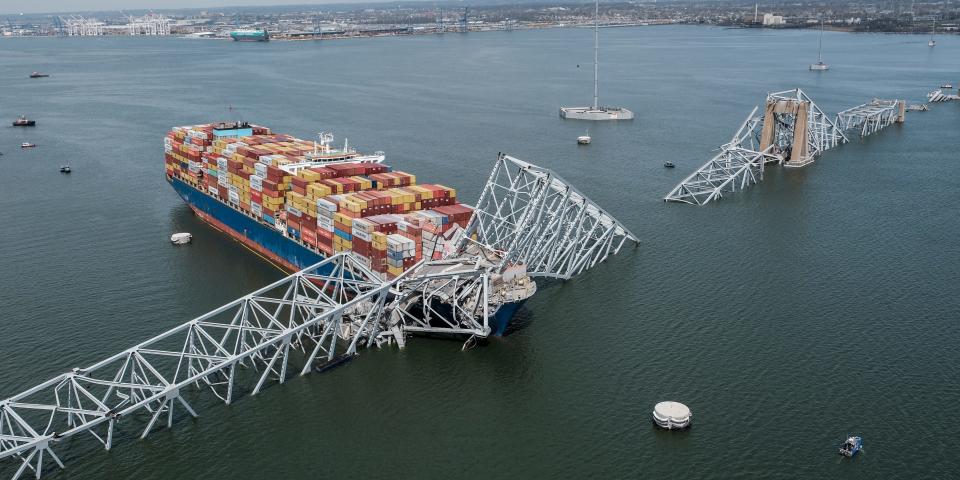The Baltimore bridge collapse will put a dent in a 28-million-ton coal-exporting operation, EIA says

The Baltimore bridge collapse will put a dent in the city's 28-million-ton coal-exporting operation, the EIA says.
The port is the second-largest exporting hub of coal in the US, accounting for 28% of total coal exports in 2023.
The rest of the energy market will be less impacted, but the terminal closure could affect agricultural markets by impacting imports of fertilizers.
The ship that crashed into a bridge in Baltimore this week is going to be a drag on the coal-export market this year, the Energy Information Administration said in new research.
Currently, the collision of the Maersk ship into the Francis Scott Key Bridge has temporarily halted all shipping traffic from the Port of Baltimore. The port is the second-largest exporting hub of US coal, a release from the EIA stated. Last year, the port accounted for 28% of total US coal exports. That's a total of 28 million short tons.
While the EIA has already forecasted a slowdown in US coal exports this year as renewable energy adoption replaces coal consumption, the port closure will further negatively impact exports, the agency said.
The hiccup has already affected the share prices of key companies involved in the coal trade in Baltimore lower, from Consol Energy to CSX Railroad.
Most of the coal leaving the Baltimore port would head towards Asia, EIA data shows. In fact, last year, demand for coal from Asian countries accounted for a surge in exports, especially from India, where the manufacturing industry is a big customer. China and Japan have also been buying more coal from the US over the past few years.
Besides coal, however, energy markets are expected to go relatively untouched. In terms of petroleum products, the Baltimore terminal mostly imports biodeisel feedstock and edible oils from countries in Central America and Western Europe, the EIA researchers said.
It could, however, impact agricultural markets. The Port of Baltimore is the closest coastal port to Midwestern markets which have a significantly higher demand for products like fertilizers, the EIA said. And the terminal imports the most urea ammonium nitrate, a liquid fertilizer product, on the Atlantic Coast.
Read the original article on Business Insider

 Yahoo Finance
Yahoo Finance 